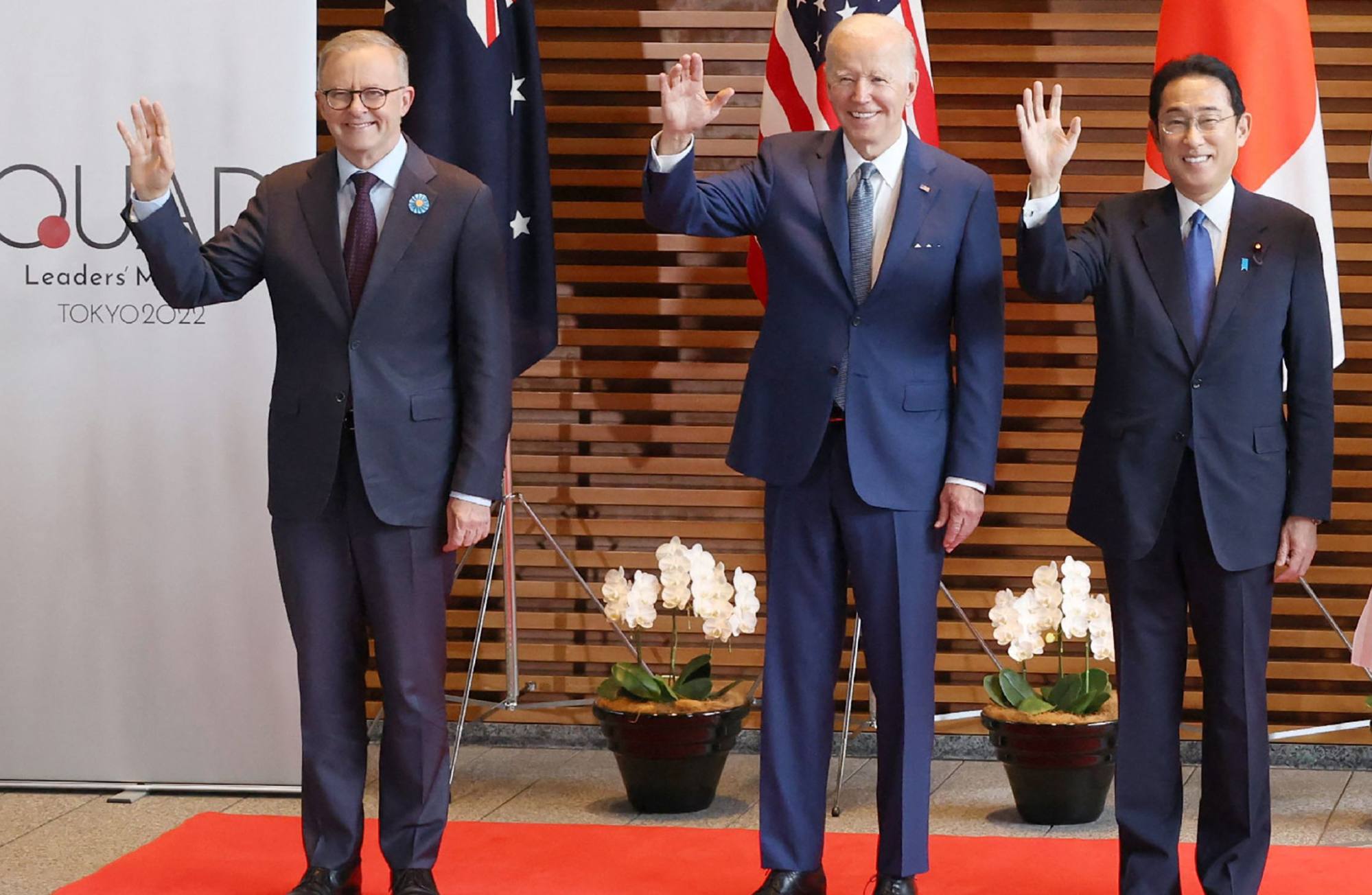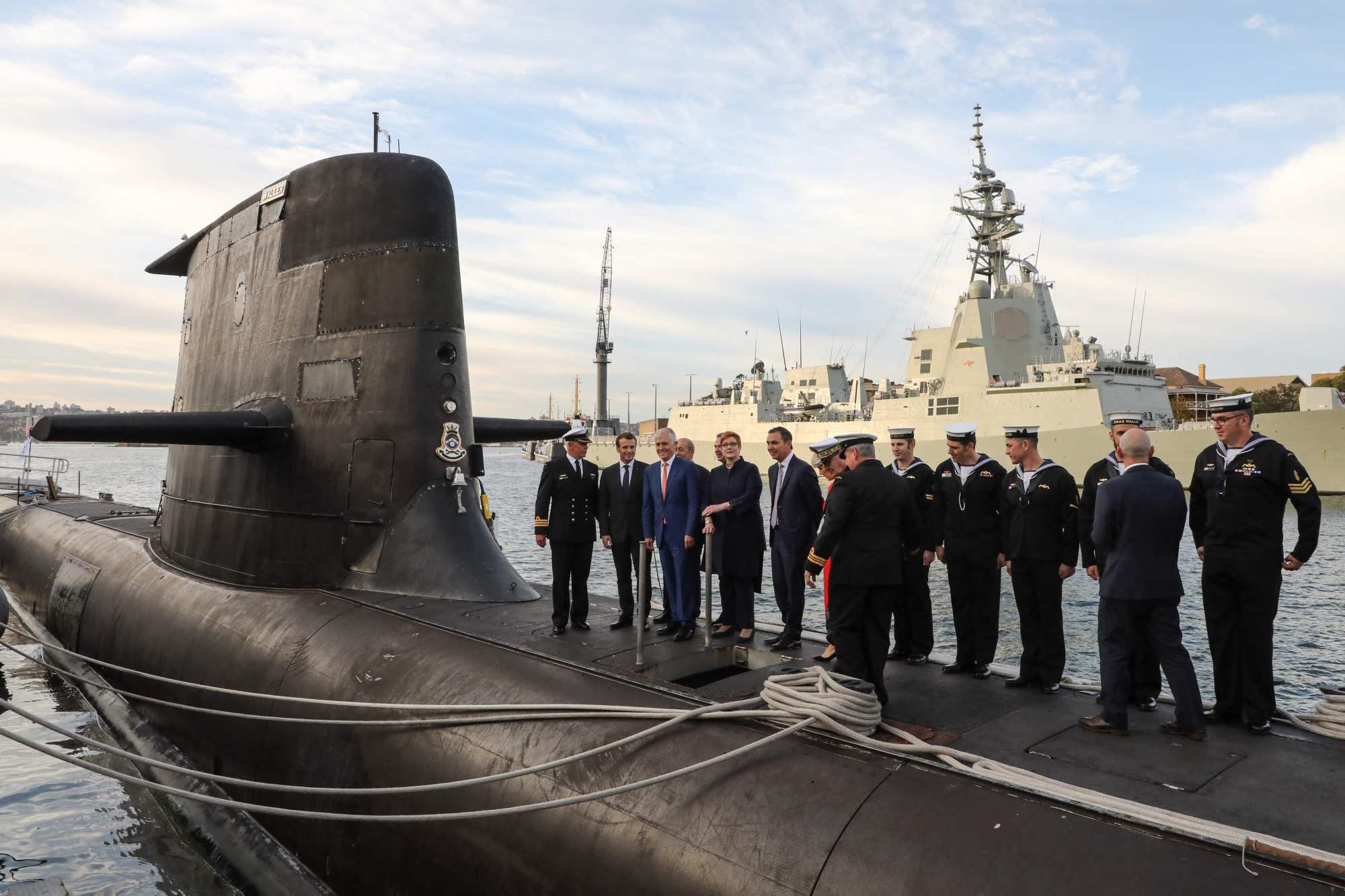
Japan joining Aukus: the ‘logical choice’, but would it be a full partner in the alliance?
- Even Chinese state media concedes that a ‘Jaukus’ alliance is likely to happen sooner or later, as Japan draws closer to Australia, the US and UK
- Yet there are still unresolved issues surrounding the transfer of sensitive technologies – not to mention that troublesome nuclear submarine deal
Yet Japan’s possible entry to the grouping “should not be limited” to discussions on this topic, according to Jonathan Berkshire Miller, a senior fellow at the Japan Institute of International Affairs in Tokyo.

Michael Auslin, a research fellow at Stanford University’s Hoover Institution think tank, wrote late last month in Foreign Affairs magazine that “Japan’s technological and security policies and ambitions are increasingly aligned” with the three existing Aukus members.
“Tokyo is exceptionally well equipped to help Canberra, London, and Washington develop critical defence technologies and bolster stability in Asia,” he said. “The transition from Aukus to Jaukus would represent the natural evolution of the group.”
In a separate article published in Foreign Policy magazine this month, Auslin argued that “an informal Jaukus is already emerging thanks to an alignment of actions aimed at balancing Chinese advances” – pointing to joint maritime training the four nations’ navies have conducted and Tokyo’s decision to research hypersonic missiles soon after an Aukus announcement on the same topic.
Japan, US to work together to counter hypersonic weapons, with eye on China
China’s nationalistic Global Times tabloid responded to Auslin’s comments by arguing that “Aukus’ northward expansion will naturally undermine regional peace and stability”. But even it conceded that Japan would join the alliance “sooner or later”, citing both a Chinese researcher and military expert who said it was just a matter of time.
Japanese Ambassador to Australia Shingo Yamagami hinted at as much in his remarks to the “Advancing Aukus Conference” in Canberra on November 14.
Japan, he noted, “is the linchpin for US force projection into Northeast Asia”, while Tokyo, Britain and Australia “share an ‘alliance in all but name’”.
What matters to you, matters to us too
He said Japan stood ready to discuss with Aukus countries “where we can cooperate bilaterally on defence technology”, adding that any defence arrangement between the latter three “is bound to influence Japan’s defence and security sectors”.
“In other words, what matters to you, matters to us too,” Yamagami said.
Nuclear submarine deal ‘now under question’?
Celine Pajon, head of Japan research at the French Institute of International Relations’ Centre for Asian Studies in Paris, agreed that the Aukus nuclear submarine deal “is now under question”, but said this could work out in Japan’s favour as it had at one time been a front runner to build a new fleet of submarines for Australia before France won the contract in 2016.
“Tokyo could be back in the game if a long delay forces Canberra to explore alternative options”, Pajon said, adding that Japan was always interested in deepening its relationship with key ally the US and “other like-minded countries in the region”.

“For several months, it was clear that there was a Japanese interest to join part of Aukus dedicated to high tech and innovation, as Japan is well integrated with the US, UK and Australia,” Pajon said.
Michito Tsuruoka, an associate policy management professor at Keio University in Tokyo, said Japan “could get more involved” in Aukus if it were to look beyond submarines to other areas such as artificial intelligence and cyber technologies.
“But before that, we will need to address issues related to export control of defence technologies,” he said, pointing out that stringent US regulations on defence technology transfers meant Japan might be prevented from taking part in “the most sensitive kind of projects”.
“It is rather natural that Japan would be interested in Aukus,” said Ryo Sahashi, an associate professor of international politics at the University of Tokyo, who noted that even though Japan has not entered into a formal alliance with the Aukus countries, it has worked with all sides to strengthen security cooperation and develop trust.
Tokyo’s cooperation, however, may be limited by its “weak” management of sensitive technologies, Sahashi said.
Biden pledges more support on Myanmar, sea row in ‘new era’ of US-Asean ties
Eleanor Shiori Hughes, a defence analyst at The Asia Group strategic consulting firm in Washington, said Japan understands “the precarious trajectory of the geopolitical environment in East Asia and has a greater sense of urgency to enhance cooperation with Aukus countries on a bilateral basis”.
This would allow the two to find diplomatic solutions and maintain economic ties, said Miller from the Japan Institute of International Affairs, but it should not prevent Tokyo from pursuing strategic relationships and pacts that will increase the country’s deterrence capabilities and partnerships in the region.

